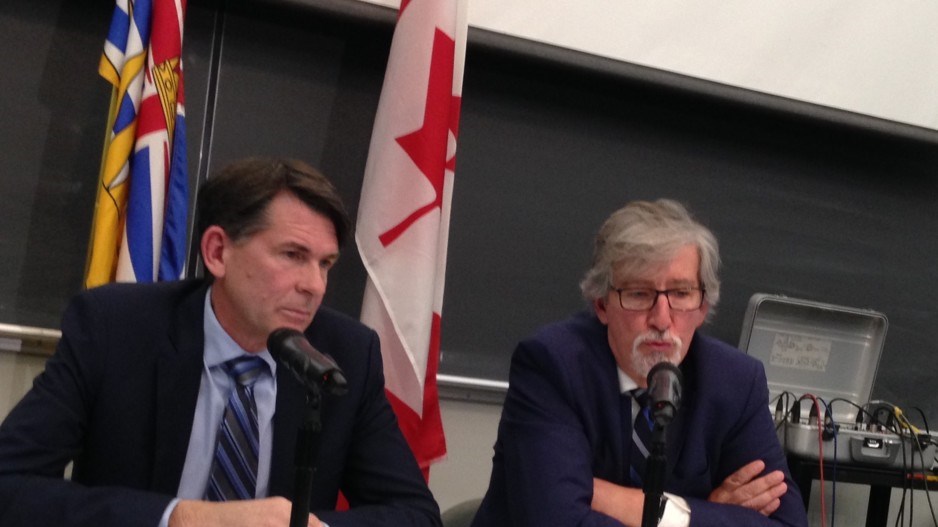A global 'mass surveillance' company ordered by B.C.'s privacy watchdog to stop collecting British Columbians' images is challenging that order in B.C. Supreme Court.
Clearview AI claims B.C.'s Personal Information Protection Act does not apply to the company as it is physically located in the United States. It calls the orders unreasonable and unenforceable.
In December, Information and Privacy Commissioner (OIPC) Michael McEvoy ordered the facial recognition company to stop collecting, using and disclosing images of British Columbians without consent.
The order was initially a set of February recommendations that the company has refused to comply with, McEvoy's office said.
The Quebec and Alberta commissioners issued similar orders. They found the New York-based company violated federal and provincial privacy laws.
The recommendations followed a joint investigation report by the Privacy Commissioner of Canada, the Commission d'accès à l'information du Québec, the Information and Privacy Commissioner for British Columbia, and the Information and Privacy Commissioner of Alberta.
"What Clearview does is mass surveillance, and it is illegal," Privacy Commissioner of Canada Daniel Therrien said at the time. "It is completely unacceptable for millions of people who will never be implicated in any crime to find themselves continually in a police line-up."
The commissioners found Clearview scraped images of faces and associated data from publicly accessible online sources (including social media) and stored it in its database.
Now, in a January petition to the court, Clearview wants a court declaration that the order is unreasonable and an order quashing and setting aside that order.
Indeed, the company said, the order must be quashed as the commissioners' finding that the information collected was not public is unreasonable.
A suit has not targeted the federal office. Under the national Personal Information Protection and Electronic Documents Act, it does not have order-making powers, that office's spokesperson, Vito Pilieci, said.
Clearview said its facial recognition search engine "compares user-provided images of faces to a database of images indexed from public web pages. The tool allows law enforcement and national security agencies to identify victims and perpetrators of crimes.
"Clearview's technology enables its clients to investigate serious crimes, enhancing public safety and provide justice to victims," the petition said. "The ability of all search engines to operate in this way is crucial to the free flow of information over the Internet for all users."
The company claims the order infringes the company's Charter right to freedom of expression.
The company said it has never broadly served Canadian law enforcement agencies. Still, it said the RCMP had been a paying client, and Clearview had provided trial accounts to other Canadian users. Those offerings ceased in July 2020, the company said.
However, the issue the commissioners had was that Clearview did not obtain the requisite consent to collect, use, and disclose the personal information of Canadians. The personal information, they concluded, was for an improper purpose.
What the commissioners recommended was that Clearview:
• cease offering facial recognition services to Canadian clients;
• cease collecting, using and disclosing images and biometric facial arrays collected from individuals in Canada, and;
• delete images and biometric facial arrays collected from individuals in Canada.
The company said those recommendations were impossible to execute.
As a result, McEvoy banned the company from offering its services in B.C and turned the recommendations into an order.
Clearview asserts the orders are impossible to comply with and are unreasonable and unenforceable.
OIPC spokeswoman Michelle Mitchell said the office couldn't comment on the details of the case.




